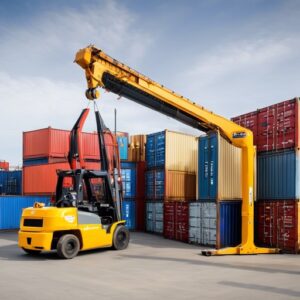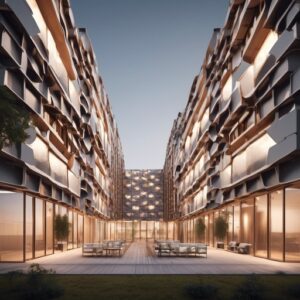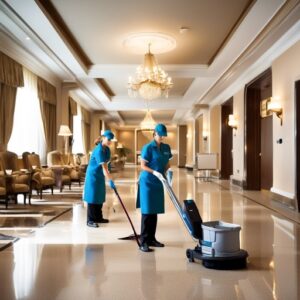In the bustling city of Memphis, Tennessee, hotels stand as beacons of hospitality, welcoming travelers from all corners of the globe. However, amidst the urban landscape, trees often play a vital role in enhancing the aesthetic appeal and providing shade and tranquility to hotel grounds. While trees offer numerous benefits, they also pose potential risks, especially in a region prone to severe weather events like thunderstorms and hurricanes. In such scenarios, the need for a tree expert witness becomes imperative for hotels to navigate legal complexities and ensure the safety of guests and property. This article explores three compelling reasons why Memphis hotels may find it essential to hire a tree expert witness.
Liability Mitigation
Memphis, TN, experiences its fair share of inclement weather, including high winds, heavy rain, and occasional storms. These weather conditions can weaken tree structures, making them susceptible to falling or shedding branches. For Memphis hotels, trees located on their premises present a potential liability risk, particularly if they cause injury to guests or damage to property.
In cases where an incident occurs involving a tree on hotel grounds, whether it’s a branch falling on a guest’s vehicle or a tree collapsing onto a building, legal disputes often arise regarding liability. Here, a tree expert witness can play a crucial role in assessing the condition of the tree, determining whether any negligence occurred in its maintenance, and providing expert testimony in court.
For instance, if a guest sustains injuries due to a fallen branch, the hotel may face a lawsuit alleging negligence in maintaining the trees. In such situations, a qualified tree expert can conduct a thorough evaluation of the tree’s health, structural integrity, and maintenance history to ascertain whether the hotel took reasonable measures to prevent such incidents. Their testimony can provide valuable insights into whether the hotel fulfilled its duty of care and help mitigate potential liability.
Tree Health Assessment
Maintaining the health and vigor of trees on hotel premises is essential not only for aesthetic purposes but also for ensuring the safety of guests and staff. However, assessing the health of trees requires specialized knowledge and expertise that may not be readily available within the hotel staff.
A tree expert witness possesses the requisite skills to conduct comprehensive assessments of tree health, identifying signs of disease, pest infestations, structural weaknesses, and other factors that could compromise tree stability. By regularly engaging a tree expert witness to inspect and evaluate the health of trees on hotel grounds, property owners can proactively address any issues and implement appropriate remedial measures, thus reducing the risk of tree-related incidents.
Moreover, in the event of a legal dispute involving tree health, such as a disagreement over whether a tree’s deterioration was apparent or foreseeable, the testimony of a qualified tree expert can serve as invaluable evidence. Their professional opinion carries weight in court proceedings, helping to establish the extent of any existing health issues and the measures that should have been taken to address them.
Compliance with Local Regulations
In addition to potential liability concerns and tree health considerations, Memphis hotels must also adhere to local regulations governing tree management and preservation. Municipal ordinances may dictate specific requirements regarding tree maintenance, pruning practices, and the removal of hazardous trees.
Failure to comply with these regulations can result in fines, penalties, or legal consequences for the hotel. Therefore, it is essential for hotel owners and management to stay informed about the relevant ordinances and ensure that their tree management practices align with legal requirements.
A tree expert witness familiar with local regulations can provide valuable guidance and assistance to hotels in navigating compliance issues. By conducting thorough assessments of tree management practices and offering recommendations for alignment with applicable regulations, a tree expert witness helps hotels mitigate the risk of regulatory violations and associated legal repercussions.
Conclusion
In conclusion, the presence of trees on hotel premises in Memphis, TN, adds beauty and tranquility to the guest experience. However, it also introduces potential risks and legal complexities that hotel owners and management must address proactively. By enlisting the services of a qualified tree expert witness Memphis, hotels can mitigate liability, ensure the health and safety of guests and staff, and maintain compliance with local regulations.
From assessing tree health to providing expert testimony in legal disputes, a tree expert witness plays a crucial role in safeguarding the interests of Memphis hotels and protecting their reputation and assets. By recognizing the importance of proactive tree management and investing in the expertise of professionals, hotels can create a safer and more enjoyable environment for guests while minimizing the risk of tree-related incidents.











